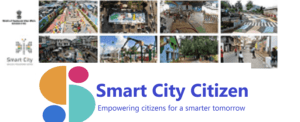Importance of Citizen Engagement in Smart City Development:
Citizen engagement is a fundamental pillar in the development of smart cities. By actively involving citizens in the decision-making processes and implementation of smart city initiatives, several significant benefits can be achieved:
- Empowering Citizens:
- Tailoring Solutions to Local Needs:
- Enhancing Transparency and Accountability:
- Improving Service Delivery:
- Fostering Innovation and Creativity
- Strengthening Social Cohesion:
- Ensuring Inclusive Development:
Citizen engagement is crucial for successful smart city development. By involving citizens as active participants, smart cities can harness the collective wisdom, creativity, and aspirations of their communities, leading to more sustainable, inclusive, and livable urban environments.
The current status of citizen engagement in smart city development projects in India
The current status of citizen engagement in smart city development projects in India varies across cities. While some cities have made significant progress in actively involving citizens, others are still in the early stages of implementing citizen engagement initiatives. Here are some key aspects of the current status:
Varied Levels of Implementation: Different smart cities in India have adopted diverse approaches to citizen engagement. Some cities have established dedicated platforms and mechanisms for citizen participation, such as online portals, mobile applications, and public consultations, to gather feedback and ideas from residents. These cities actively involve citizens in decision-making processes, project planning, and monitoring. However, the extent and effectiveness of citizen engagement can vary, with some cities still facing challenges in ensuring meaningful participation.
Digital Platforms for Citizen Engagement: Several smart cities in India have embraced digital platforms to facilitate citizen engagement. These platforms provide avenues for citizens to provide feedback, report issues, and participate in surveys or polls related to smart city projects. Through these platforms, citizens can voice their opinions, suggest improvements, and monitor the progress of ongoing initiatives. This shift towards digital platforms has increased accessibility and convenience for citizens to engage with smart city projects.
Awareness and Participation: Citizen awareness and participation levels in smart city development projects vary across different cities. In some cities, citizens are actively involved and show a high level of interest in shaping the future of their communities. They actively participate in workshops, town hall meetings, and community events organized by the smart city authorities. However, in certain areas, there may be a lack of awareness or limited participation due to various factors such as language barriers, lack of access to technology, or limited outreach efforts.
Challenges and Opportunities: Citizen engagement in smart city development projects in India faces challenges such as limited awareness, lack of trust, and varying levels of digital literacy among citizens. Additionally, ensuring representation of diverse sections of society, including marginalized communities and vulnerable groups, remains a challenge. However, these challenges also present opportunities for improvement. Efforts are being made to enhance citizen awareness, provide capacity-building programs, and ensure inclusive engagement strategies to overcome these barriers.
Best Practices and Lessons Learned: Some smart cities in India have implemented successful citizen engagement practices that can serve as examples for others. These best practices include conducting awareness campaigns, establishing citizen advisory committees, organizing hackathons or innovation challenges, and leveraging social media platforms for citizen outreach. Sharing these success stories and lessons learned can inspire other cities to adopt similar approaches and foster citizen engagement in their smart city projects.
Overall, while progress has been made in citizen engagement in smart city development projects in India, there is still room for improvement. Enhancing awareness, accessibility, and inclusivity are key focus areas for smart city authorities to ensure meaningful and widespread citizen participation. By actively involving citizens, India’s smart cities can better align their initiatives with the needs and aspirations of the people they serve, leading to more successful and citizen-centric urban transformations.
Why Citizen engagement is low in Smart City projects in India
There could be several reasons for the lack of interest or low participation in citizen engagement in smart city development projects in India. Here are some possible factors that contribute to this issue:
- Lack of Awareness: Many citizens may be unaware of the concept of smart cities, their potential benefits, and how they can actively participate. Limited communication and outreach efforts by smart city authorities to educate and inform citizens about ongoing projects and opportunities for engagement can result in a lack of interest.
-** Limited Access to Information and Technology**: Access to reliable information and technology infrastructure is essential for citizen engagement. In some areas, citizens may have limited access to the internet, smartphones, or other digital platforms, making it challenging for them to participate in online engagement activities. This digital divide can hinder their ability to engage effectively in smart city initiatives.
Perception of Limited Influence: Citizens may feel that their input and suggestions have little impact on decision-making processes. If they perceive that their participation is merely tokenistic or that decisions are already predetermined, they may lose interest in engaging with smart city projects. Ensuring that citizen input is genuinely considered and acted upon is crucial for fostering sustained interest and involvement.
Language and Cultural Barriers: India is a linguistically and culturally diverse country. Language barriers can make it difficult for citizens to access information and engage effectively. If engagement initiatives are primarily conducted in a language that is not widely understood or cater to specific cultural norms, it may limit participation from certain sections of the population.
Time Constraints and Priorities: Citizens may have competing priorities or time constraints that prevent them from actively engaging in smart city projects. Engaging citizens requires their commitment and availability, which may be challenging for individuals juggling multiple responsibilities such as work, family, and other commitments.
Lack of Trust and Confidence: Citizens may lack trust in the government or smart city authorities, which can result in skepticism or disinterest in engaging with their initiatives. Building trust through transparent and accountable processes, actively addressing citizen concerns, and showcasing the impact of citizen input can help overcome this barrier.
Limited Inclusivity: Ensuring that citizen engagement efforts are inclusive and representative of diverse communities and perspectives is crucial. If certain segments of the population, such as marginalized communities or vulnerable groups, are not adequately included, it can contribute to a lack of interest or disengagement.
Addressing these challenges requires proactive measures from smart city authorities, including comprehensive awareness campaigns, targeted outreach strategies, multi-lingual communication, inclusive participation frameworks, and efforts to build trust and demonstrate the impact of citizen input. By addressing these factors, the level of interest and participation in citizen engagement can be enhanced, leading to more successful and inclusive smart city development projects.


SMARTCITYCITIZEN.COM: A REVOLUTIONARY PLATFORM FOR EMPOWERING URBAN COMMUNITIES

Get Involved

Citizen engagement initiatives in Bangalore smart city projects
Event
Survey
Suggestions
Exploring the Impact of 5G Networks on Shaping India’s Urban Centers into Smart Cities

Enhancing Pedestrian Infrastructure: Transforming Footpaths for People-Centric Urban Spaces
Mangaluru: Dinesh Gundu Rao pulls up officials over delay in Smart City work completion
Volunteer
TAKE PART IN CITIZEN ENGAGEMENT PROJECTS
Our Citizen Engagment Team invites Citizens Opinion / Particiaption in Surveys through email, direct to your inbox. We also email about Smart City Projects. Special Events / Gatherings in your city.



